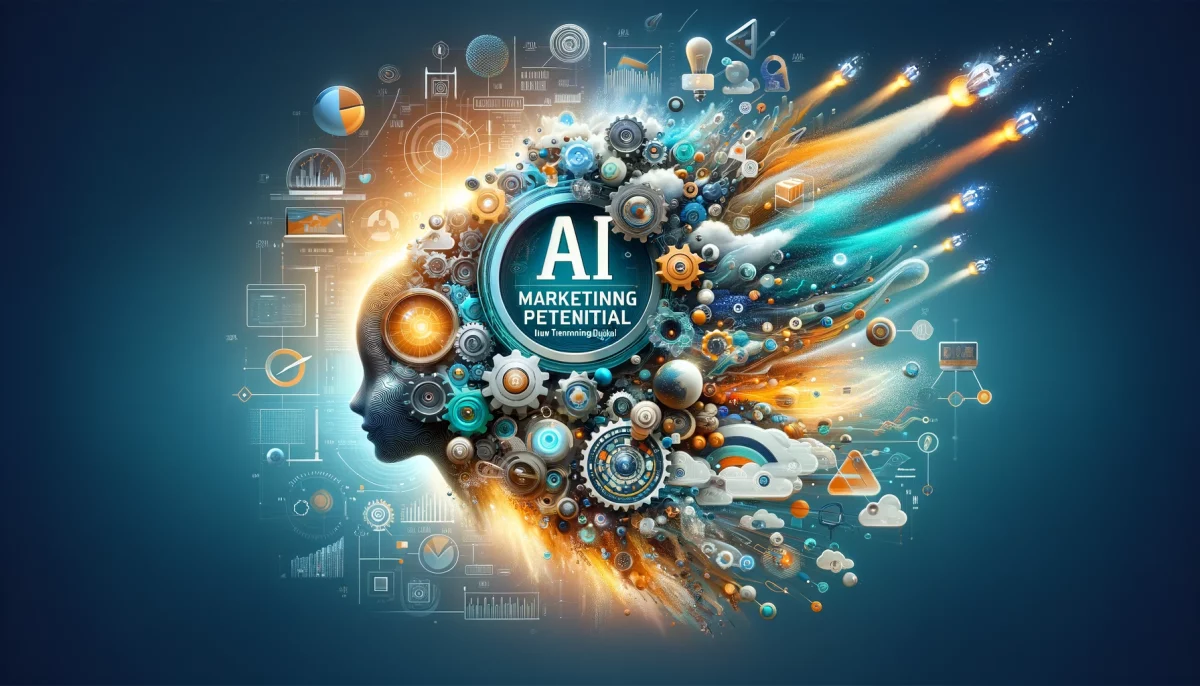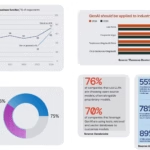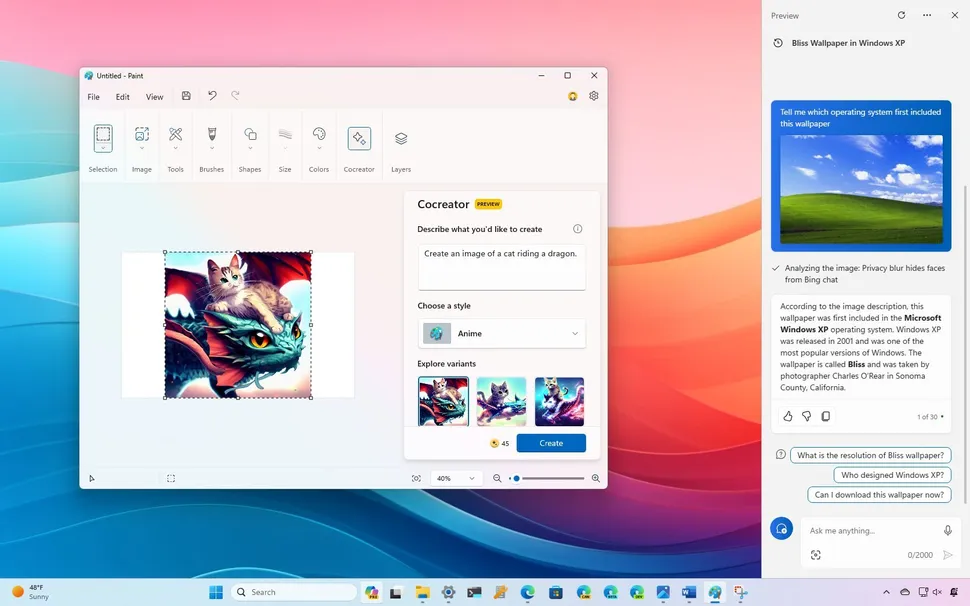The Dawn of AI Content Creation
Estimated reading time: 15 minutes
Key Takeaways
- The demand for content in the digital world is *ever-increasing*.
- AI content creation is a transformative force reshaping content production.
- This technology uses artificial intelligence, machine learning, and natural language processing for automated and enhanced content generation.
- We will delve into the capabilities, benefits, and strategic implications of AI content creation.
- AI acts as an AI writing assistant, plays a role in automating content, and is vital in AI in marketing.
- AI content creation is revolutionizing digital content strategy, covering writing, marketing, and search optimization. Source: AI writing statistics, AI content creation report 2025, content marketing statistics.
Table of contents
- The Dawn of AI Content Creation
- Key Takeaways
- Demystifying AI Content Creation
- The Evolution of the AI Writing Assistant
- Mastering Automating Content Creation: Efficiency and Scale
- AI in Marketing: A Strategic Revolution
- SEO Content AI: Dominating Search Engine Results
- The Multifaceted Benefits of AI Content Creation
- Navigating the Challenges and Ethical Considerations
- Gazing into the Future of AI Content Creation
- Embracing the AI-Powered Content Landscape
- Frequently Asked Questions
In the vast and ever-expanding digital universe, the demand for fresh, engaging, and relevant content is insatiable. From blog posts that educate and entertain to marketing copy that persuades and converts, content is the lifeblood of online presence. But producing this constant stream of high-quality material can be a monumental task. Enter AI content creation – a transformative force that is fundamentally changing how we conceive, produce, and distribute content.

This revolutionary technology leverages the power of artificial intelligence, sophisticated machine learning algorithms, and advanced natural language processing (NLP) to automate and significantly enhance the entire content generation process. It’s not just about generating words; it’s about crafting narratives, optimizing for engagement, and driving strategic outcomes.
This blog post aims to demystify the world of AI content creation. We will delve deep into its capabilities, explore the profound benefits it offers, and examine its strategic implications across various domains. You’ll discover how AI serves as an indispensable AI writing assistant, its pivotal role in automating content, and its growing, undeniable importance in the realm of AI in marketing and SEO content AI.
The landscape of digital content is undergoing a seismic shift, driven by AI. It’s transforming digital content strategy by leveraging artificial intelligence to automate and enhance everything from writing to marketing and search optimization. Source: AI writing statistics, AI content creation report 2025, content marketing statistics.
Demystifying AI Content Creation
At its core, AI content creation refers to the use of artificial intelligence tools and platforms to generate various forms of content. These tools are powered by sophisticated machine learning models and natural language processing, enabling them to understand context, mimic human writing styles, and produce coherent and relevant output. For a non-expert audience, think of it as having an incredibly versatile and knowledgeable assistant that can draft, design, and even conceptualize content.
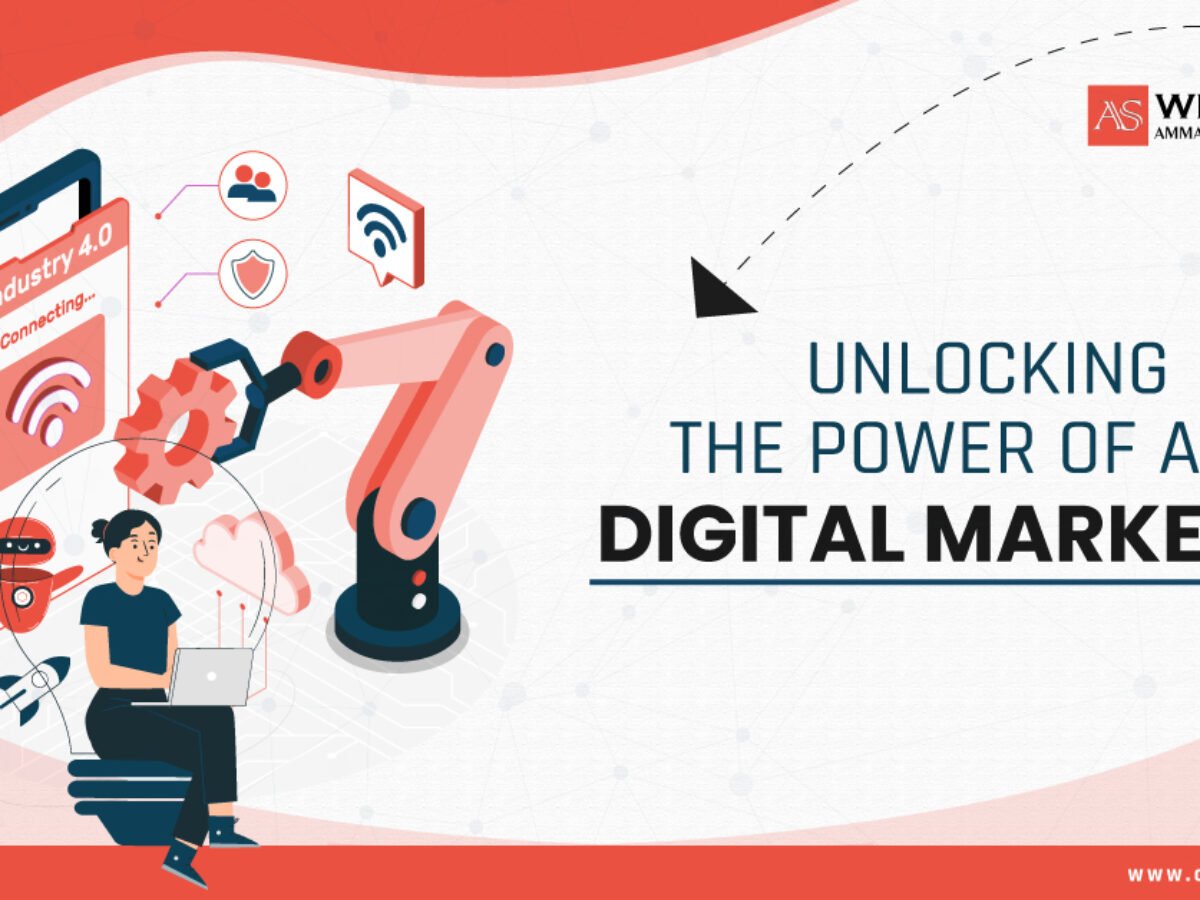
It’s crucial to differentiate between basic AI text generation and the advanced capabilities of modern AI models. Early AI text generators might have been limited to producing simple sentences or keyword-stuffed phrases. However, today’s advanced AI models, such as those based on architectures like GPT-4, can generate highly sophisticated, nuanced, and contextually appropriate content that is often indistinguishable from human-written text.
The diversity of content that AI can generate is truly impressive:
- Articles and Blog Posts: From informative how-to guides to engaging opinion pieces, AI can draft entire articles.
- Social Media Updates: Crafting compelling posts, captions, and even entire social media campaigns tailored to different platforms.
- Product Descriptions and Reviews: Generating detailed, persuasive descriptions for e-commerce products and drafting customer reviews.
- Email Marketing Copy and Advertising Headlines: Creating effective subject lines, body copy for emails, and attention-grabbing headlines for advertisements.
- Video Scripts and Multimedia Content: AI can even assist in writing scripts for videos, podcasts, and other multimedia formats, and some tools can generate audio content.

Today, AI tools serve as sophisticated writing assistants, drive efficiency, and make scalable, personalized content possible for businesses of any size. Source: AI marketing statistics, content marketing statistics.
The keyword placement for this section is AI content creation.
The Evolution of the AI Writing Assistant
One of the most significant ways AI impacts content creation is through its role as an AI writing assistant. This isn’t about replacing human writers but rather about augmenting their capabilities, fostering a collaborative partnership that enhances productivity and creativity. These tools act as intelligent partners, seamlessly integrating into the writing process to offer support at every stage.
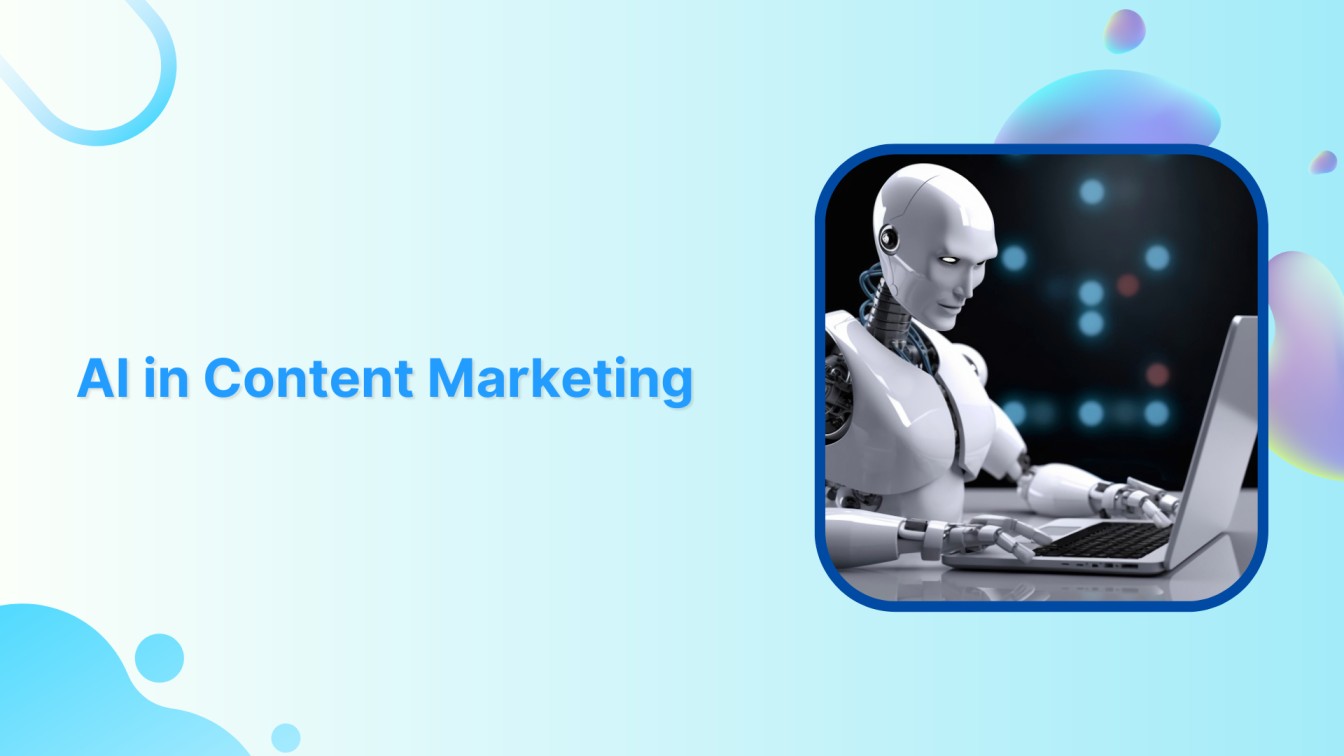
Here’s how an AI writing assistant can augment the writing process:
- Brainstorming and Ideation: Overcoming the dreaded writer’s block by generating a multitude of topic ideas, unique angles, and innovative creative concepts that a human might not have considered.
- Outlining: Providing a structured framework for content, suggesting logical flow, and organizing ideas with clear headings and subheadings, ensuring a coherent narrative.
- Drafting: Producing initial versions of text, which can then be refined by human editors. This dramatically saves time, especially for longer pieces or repetitive content.
- Editing and Proofreading: Going beyond simple spell-check, AI assistants can identify complex grammatical errors, stylistic inconsistencies, and suggest improvements for clarity, tone, and conciseness.
- Content Optimization: Assisting in integrating relevant keywords naturally, enhancing readability scores, and ensuring the content is aligned with SEO best practices.
Common features found in AI writing assistant tools include the ability to adjust the tone of voice (e.g., formal, casual, persuasive), summarize lengthy texts into concise points, and rephrase sentences or paragraphs for better flow or impact. These functionalities empower writers to produce better content, faster.

In 2025, a staggering 71.7% of content marketers use AI for outlining, 68% for ideation, and 57.4% for drafting—these are the top use cases. Source: AI writing statistics.
The keyword placements for this section are AI writing assistant and AI content creation.
Mastering Automating Content Creation: Efficiency and Scale
Beyond assisting individual writers, AI is revolutionizing content creation through the power of automating content. This means using AI to handle repetitive, time-consuming, or large-scale content generation tasks that would be impractical or prohibitively expensive with human resources alone.
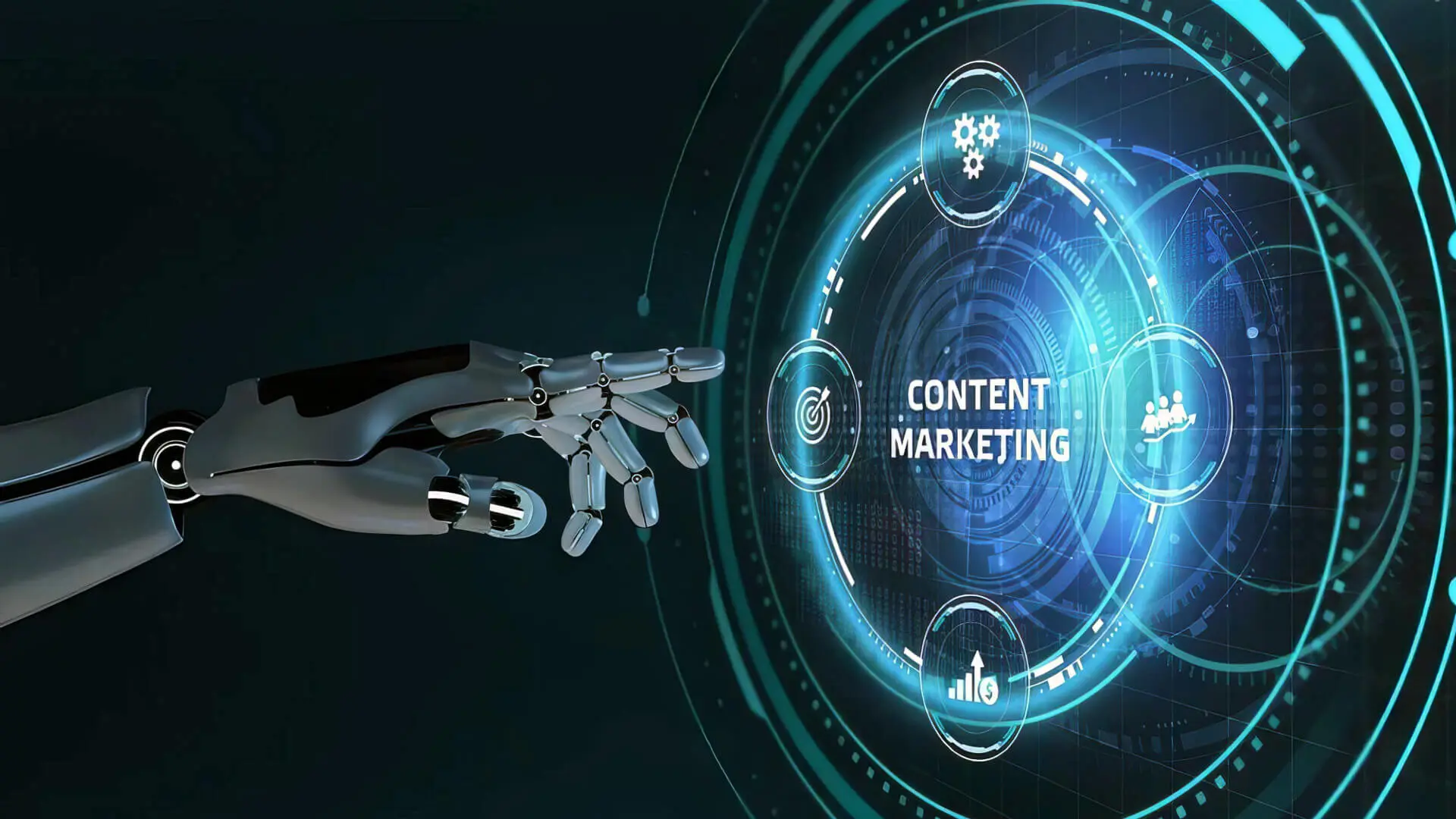
The core benefits of automating content with AI are profound:
- Speed and Scalability: AI can produce vast quantities of content at an unprecedented speed. Imagine generating thousands of unique product descriptions for an e-commerce website in a matter of hours, or creating daily news summaries for multiple regions.
- Cost-Efficiency: By automating repetitive tasks, businesses can significantly reduce the human resources and time investment required for content creation and management, leading to substantial cost savings.
- Consistency: AI ensures a uniform quality, tone, and adherence to brand guidelines across large volumes of content, which can be a challenge to maintain with a human team.
Specific scenarios where automating content proves particularly advantageous include:
- Generating regular news updates, financial reports, or sports summaries based on data feeds.
- Creating multiple variations of ad copy for A/B testing to optimize campaign performance.
- Populating large e-commerce catalogs with detailed, SEO-friendly product information.
- Producing personalized marketing messages at scale for segmented audiences.

Marketers report that 93% use AI for faster content generation and 81% for uncovering insights more quickly. Source: AI marketing statistics.
AI is particularly useful where quantity and consistency matter—such as regularly updated news feeds or large catalogs of product descriptions. Source: AI writing statistics, content marketing statistics.
The keyword placements for this section are automating content and AI content creation.
AI in Marketing: A Strategic Revolution
The impact of AI content creation is nowhere more apparent than in the strategic revolution it’s driving within AI in marketing. AI-powered content goes beyond mere generation; it’s about creating hyper-personalized experiences that resonate deeply with individual customers, significantly improving engagement and driving higher conversion rates.
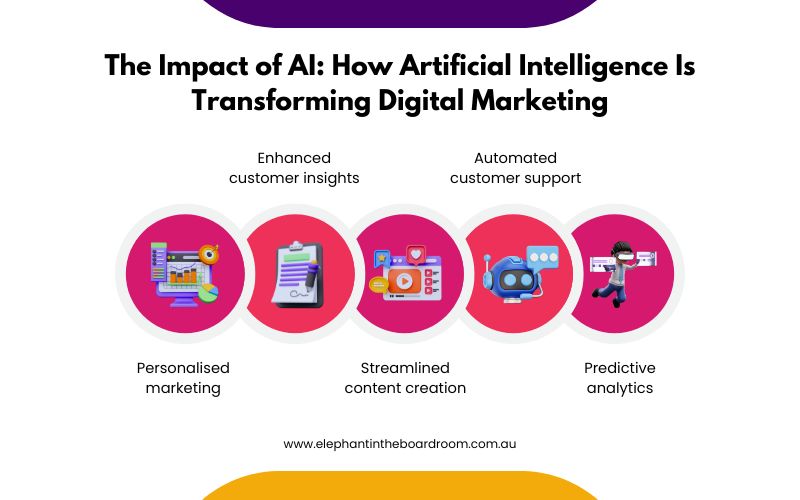
AI’s ability to analyze vast amounts of marketing data is a game-changer. It can sift through customer behavior, market trends, and campaign performance metrics to:
- Identify Emerging Trends and Audience Preferences: AI can spot subtle shifts in consumer behavior and market dynamics before they become mainstream, allowing marketers to be proactive.
- Inform and Refine Content Strategies: By understanding what content resonates with which audience segments, AI provides actionable insights to optimize future content creation and distribution strategies.
- Predict Campaign Performance: AI models can forecast the likely success of marketing campaigns, enabling marketers to make data-driven adjustments for maximum impact.
Furthermore, AI automates the creation of tailored marketing messages. This means generating personalized emails, social media updates, and ad copy that speak directly to the specific needs, interests, and past interactions of individual audience segments. This level of personalization was once an aspirational goal; now, it’s a reality powered by AI.

A significant 80% of marketers globally use AI in digital marketing, and over half use it for optimizing campaigns—including email and SEO strategies. Source: AI marketing stats, content marketing statistics.
AI in marketing enables deeper personalization, improved customer engagement, and higher conversion rates by automating content tailored to specific audiences. Source: content marketing statistics, AI statistics.
The keyword placements for this section are AI in marketing and AI content creation.
SEO Content AI: Dominating Search Engine Results
In the competitive digital landscape, visibility is paramount. This is where SEO content AI comes into play, transforming how content is crafted to not only engage readers but also to rank highly in search engine results pages (SERPs). AI tools empower content creators with sophisticated capabilities to navigate the complexities of search engine optimization.
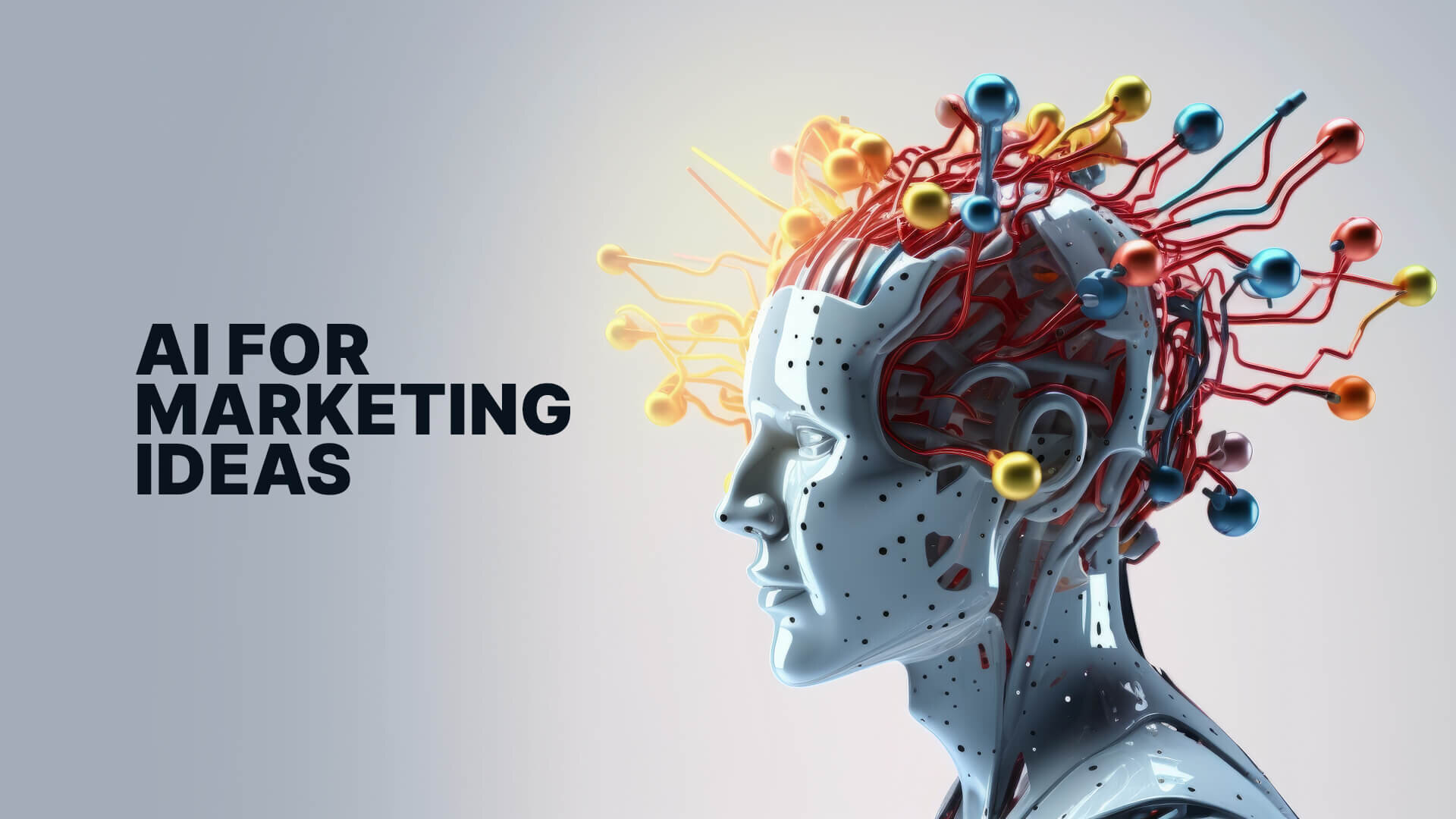
AI tools are instrumental in enabling content creators to:
- Conduct Sophisticated Keyword Research: Identify high-potential search terms, long-tail keywords, and understand user search intent with a level of detail and speed that manual research cannot match.
- Analyze Competitor Content: Gain insights into what content is performing well in search results, understanding the strategies and topics competitors are leveraging.
- Receive Actionable Recommendations: Get data-driven suggestions for on-page optimization, including the strategic placement of keywords, optimizing meta descriptions and headings, and improving internal linking structures.
- Generate User-Friendly and Search-Optimized Content: Create content that strikes the perfect balance between providing value to readers and meeting the precise requirements of search engine algorithms, leading to improved rankings.
This AI-driven approach helps content creators achieve a dual objective: producing content that is genuinely engaging and valuable for humans, while simultaneously ensuring it is discoverable and favored by search engines.

A significant 51% of marketers use AI to optimize content specifically for SEO and email campaigns. Source: AI marketing stats.
SEO content AI helps identify keywords, analyze competitor content, and suggest on-page optimizations to improve rankings. Source: AI marketing stats.
The keyword placements for this section are SEO content AI and AI content creation.
The Multifaceted Benefits of AI Content Creation
Integrating AI into content workflows unlocks a cascade of advantages that empower businesses and creators to achieve more. These benefits extend across productivity, cost-efficiency, creativity, quality, and scalability, fundamentally enhancing how content is produced and leveraged.

Let’s synthesize the key advantages of adopting AI content creation:
- Unprecedented Productivity: AI dramatically accelerates the content production cycle, allowing teams to generate a significantly higher volume of content in less time. This is invaluable for meeting the demands of a fast-paced digital environment.
- Significant Cost Savings: By automating repetitive tasks and streamlining workflows, AI reduces the need for extensive human resources and minimizes the time investment required for content creation and management, leading to substantial financial savings.
- Elevated Creativity: Far from stifling creativity, AI can act as a powerful brainstorming partner. It can help overcome writer’s block by suggesting novel ideas, angles, and approaches, sparking new avenues for creative expression.
- Enhanced Content Quality and Consistency: When guided effectively, AI can help maintain a high standard of quality and a uniform brand voice across all published material. This consistency builds trust and reinforces brand identity.
- Scalability on Demand: AI offers the remarkable ability to effortlessly scale content output up or down to meet fluctuating business needs. Whether facing a seasonal surge or a quiet period, AI can adjust seamlessly.

Marketers utilizing AI are more likely to rate their strategies as successful compared to non-users, and they report stronger year-over-year traffic growth. Source: AI writing statistics.
The keyword placement for this section is AI content creation.
Navigating the Challenges and Ethical Considerations
While the benefits of AI content creation are undeniable, it’s crucial to approach this technology with a clear understanding of its potential drawbacks and ethical considerations. AI is a powerful tool, but it requires human discernment, oversight, and responsibility.
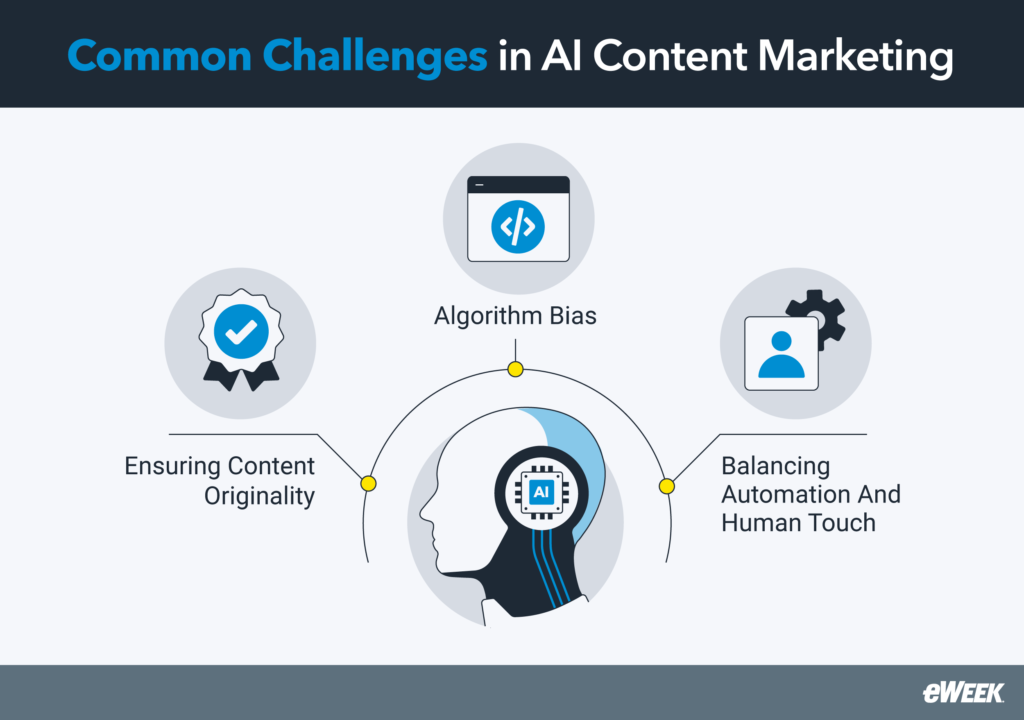
Key challenges and points to consider include:
- Accuracy and Factual Reliability: AI models learn from the data they are trained on, and this data can sometimes contain inaccuracies or outdated information. Rigorous fact-checking by human experts is essential before publishing AI-generated content.
- Originality and Plagiarism: While AI can generate novel text, there’s a risk that it might inadvertently produce content too similar to existing material, raising concerns about plagiarism. Advanced AI detection tools and careful human review are necessary to ensure originality.
- Bias in AI Models: AI models can inadvertently perpetuate biases present in their training data. This can lead to skewed, unfair, or discriminatory outputs. Awareness and proactive measures are needed to mitigate these biases.
- The Imperative of Human Oversight: It cannot be stressed enough: AI is a tool, not a replacement for human intelligence. Human creativity, critical thinking, ethical judgment, emotional intelligence, and quality control remain indispensable for producing truly high-quality, distinctive, and responsible content.
Despite automation, human creativity and critical thinking are essential for high-quality, distinctive content. Source: AI writing statistics, content marketing statistics.
The keyword placement for this section is AI content creation.
Gazing into the Future of AI Content Creation
The trajectory of AI content generation is one of continuous innovation and increasing sophistication. Looking ahead, we can anticipate several exciting advancements that will further redefine the content creation landscape.

AI is poised to evolve in ways that allow it to produce:
- More Nuanced, Emotionally Intelligent, and Context-Aware Content: Future AI models will likely develop a deeper understanding of human emotions, cultural contexts, and subtle nuances in communication, leading to content that is more relatable and impactful.
- Highly Sophisticated Multimedia Assets: Beyond text, AI will become even more adept at generating complex multimedia content, including realistic videos, dynamic audio, and interactive experiences, blurring the lines between creator and machine.
- Cross-Modal AI Capabilities: We will see AI models capable of understanding and generating content across multiple modalities simultaneously. For example, an AI might generate a video script, accompanying visuals, and even a voiceover based on a single prompt.
A significant trend emerging is the increasing integration of multiple generative AI tools for end-to-end content lifecycle management. Teams are already combining video, audio, and text AI generators to manage every stage of content creation, from initial concept to final distribution and optimization. Source: AI content creation report 2025.

Ultimately, AI is not just a tool for the future; it is rapidly becoming an embedded, standard component within content creation workflows across nearly every industry, transforming how we communicate and engage with audiences.
The keyword placement for this section is AI content creation.
Embracing the AI-Powered Content Landscape
As we navigate this dynamic digital era, the significance of AI content creation cannot be overstated. It acts as a powerful AI writing assistant, revolutionizes automating content, and plays an integral role in the strategic evolution of AI in marketing and SEO content AI.
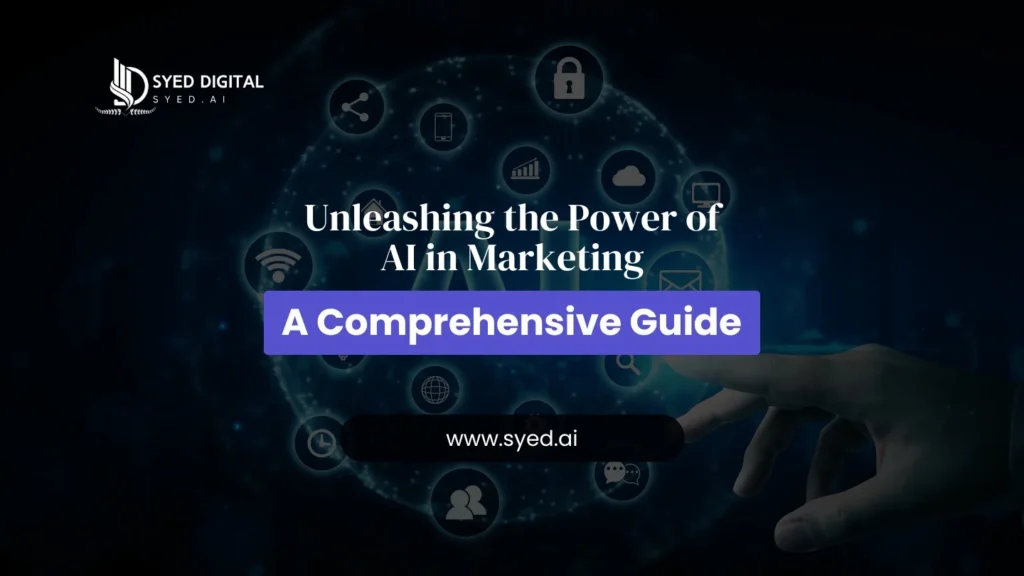
It is clear that AI is a potent tool. When wielded strategically, ethically, and with human oversight, it possesses the remarkable capability to significantly amplify content creation efforts, boost marketing effectiveness to new heights, and enhance search visibility in ways previously unimaginable.
We encourage you to explore, experiment with, and thoughtfully integrate AI technologies into your own content strategies. By doing so, you position yourself and your organization to not only keep pace but to thrive and lead in the ever-evolving digital landscape.
Source: AI writing statistics, AI content creation report 2025, content marketing statistics.
The keyword placements for this section are AI content creation, AI writing assistant, automating content, AI in marketing, and SEO content AI.
Frequently Asked Questions
Q1: Will AI replace human content creators entirely?
A: It’s highly unlikely. AI is best viewed as a powerful assistant that augments human creativity, efficiency, and strategic thinking. Human oversight, creativity, and ethical judgment remain crucial for high-quality, unique, and impactful content.
Q2: How can I ensure AI-generated content is accurate?
A: Always fact-check AI-generated content meticulously. Cross-reference information with reliable sources and have human experts review the output for accuracy, context, and relevance before publication.
Q3: Is AI-generated content original?
A: AI models aim to generate original text, but there’s a possibility of similarity to existing content. Using AI plagiarism checkers and having human editors review for originality is a best practice.
Q4: How much does AI content creation software cost?
A: Costs vary widely. There are free AI writing tools with limited features, while advanced platforms offering comprehensive capabilities can range from affordable monthly subscriptions to enterprise-level pricing.
Q5: What is the best way to start using AI for content creation?
A: Start small. Experiment with different AI writing tools for specific tasks, such as brainstorming ideas or drafting social media posts. Learn what works best for your needs and gradually integrate AI into more complex aspects of your content strategy.
Q6: Can AI help with different writing styles and tones?
A: Yes, many AI writing assistants allow you to specify the desired tone (e.g., professional, casual, witty, empathetic) and can adapt their output accordingly. This helps maintain brand consistency across various communication channels.
Q7: How does AI content creation impact SEO?
A: AI can significantly improve SEO by helping with keyword research, content optimization, generating meta descriptions, and creating content that is relevant and engaging for users, which search engines favor.
Q8: Are there ethical concerns regarding AI-generated content?
A: Yes, ethical concerns include accuracy, potential for bias in AI models, originality, and the responsible use of AI to avoid misinformation and maintain transparency with audiences about AI involvement.
